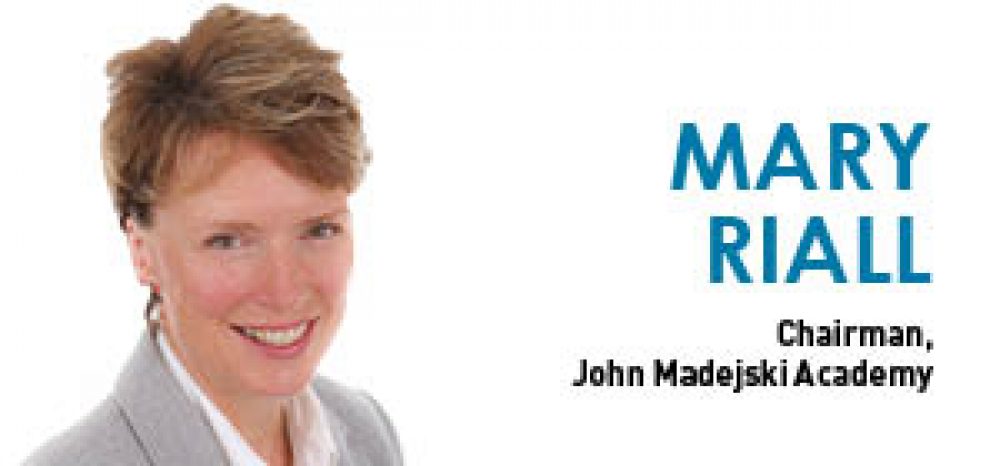The system for rebrokering schools needs reforming to better support vulnerable schools and pupils during the transition to a new academy trust, argues Mary Riall
Inadequate’ academies are too often left unsupported for long periods while their transfer to a new multi-academy trust is negotiated, even though we could make simple changes to address this.
I have personal experience of this process. The school of which I am chair – the John Madejski Academy (JMA), a standalone academy in Reading – was placed in special measures in October 2015 and instructed to join a multi-academy trust as soon as possible. Nine months later, it had official approval to join a MAT, pending a financial agreement with the DfE.
The move fell through, though, and we are now waiting to see whether a financial settlement can be agreed with a new MAT. The process has taken nearly two years, and the impact of this period of limbo has been profound.
The DfE’s sole focus has been to ensure a swift transfer, without stopping to consider other factors. The knock-on effect is that we have received minimal external support and no school improvement funding, alongside pressure to significantly cut costs. For the first nine months, our uncertain future combined with a demoralised, unsupported leadership team and low income was devastating for a school fighting to improve.
We need to accept that a successful transfer takes time
We are now improving, having recruited well on the premise of joining a successful MAT, but as an orphan we remain held back by the impact of an uncertain future and no funding support.
This story is not unique. This time last year, eight schools were In February, The Guardian cited 12 schools still waiting on a sponsor after two years.
Failing schools need a spotlight on improvement, and the DfE’s current obsession with negotiating transfers to MATs diverts attention and resources away from this fundamental need.
Sustainably brokering schools and MATs will never be a quick task, and we need a shift in focus to ensure the limbo period is used for the following improvements.
Leadership support: Failing standalone academies are particularly vulnerable, dependant on goodwill support from local authorities and MATs. They need skilled, short-term leadership assistance to implement immediate changes.
Clear communication: Leading a school through a transfer is complex. School leaders will have only partial knowledge of the negotiations towards joining a MAT yet they are responsible for delivering a positive message of progress to the community.
A new MAT can be seen as the solution to every problem, increasing the negative effect of delays and creating unrealistic expectations. You need clear advice on how to communicate the transfer process to all stakeholders, and the RSC’s office should be responsible for managing this process.
Sound chain of command: the RSC, DfE and ESFA are all points of contact. It is often unclear who communicates with whom, both within and between these departments. Governors’ roles in sourcing a MAT aren’t clear either; we lost precious months before the DfE made its choice.
Transfer funding: There is no additional funding for schools during the transfer period. In contrast, as pupil numbers inevitably fall, cuts have to be made and debt is likely to increase. The policy appears to be to hang on by your fingernails until a MAT is found. This places a stranglehold on school improvement and makes financial planning almost impossible. A clear funding agreement for the transfer period would reap huge benefits.
MAT growth is complex; as national schools commissioner Sir David Carter wrote recently, “there is no single way to create a MAT”. The unintended consequence, though, is that it leaves too many children in schools surviving under a cloud. We need to accept that a successful transfer takes time.
The government must take responsibility for the brokerage period by intervening and meeting the school’s immediate needs to drive improvement.
The impact will be great: success will see the demand lessen and meanwhile fewer children will lose precious school years to the impact of political change.
Mary Riall is chairman of the John Madjeski Academy







Sadly all too common. MATs will need to ensure that they conduct adequate due diligence and use the evidence to negotiate sufficient levels of support before they can absorb any school in deficit and with liabilities that could endanger the existing MAT.
The case of John Madejski shows how difficult it is to find academy trusts willing to take over struggling schools or academies. John Madejski has had a troubled past. It opened as an academy in 2006 as a replacement for a struggling community school, Thamesbridge College. In 2008 it was judged good but four years’ later it was downgraded to Inadequate. In 2013 it required improvement only to be put back into special measures in 2015.
It will be difficult to find a sponsor for a school with such a history.
It’s notable that Ms Riall says academies in this position are ‘dependant on goodwill support from local authorities’. Academies are independent of LAs – autonomy was supposedly one of the selling points of academization. But when academies begin to struggle it appears many LAs offer support although they’re under no legal duty to do so. Similarly with other MATs but they’re only likely to support a struggling school if there’s a chance of eventual takeover.